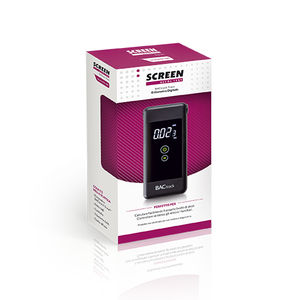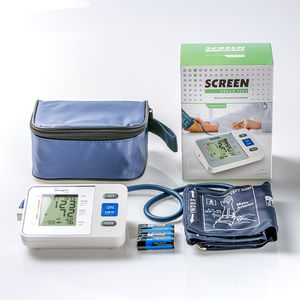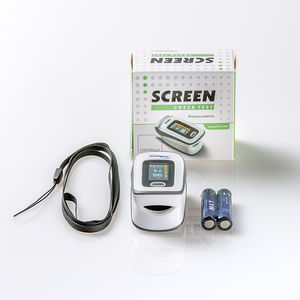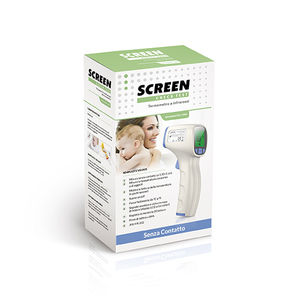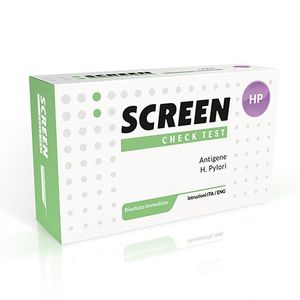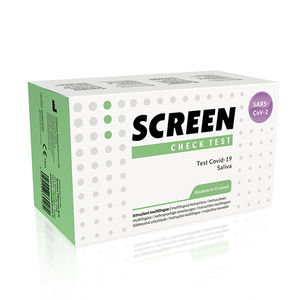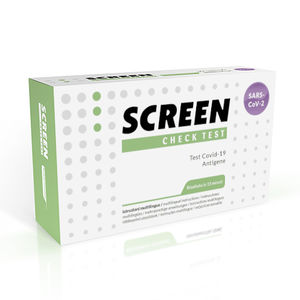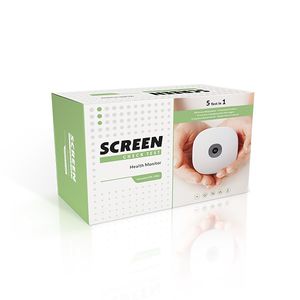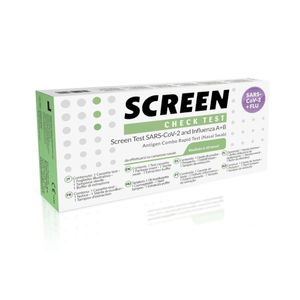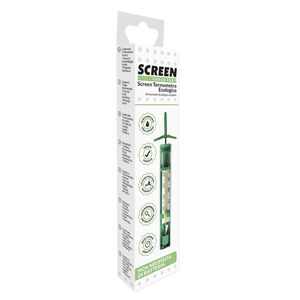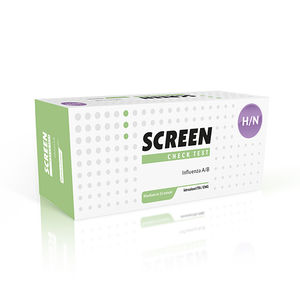
- Laboratory
- Laboratory medicine
- Rapid allergy test
- SCREEN ITALIA
- Company
- Products
- Catalogs
- News & Trends
- Exhibitions
Rapid allergy test 987315823food intolerancefor antibodiesIgA
Add to favorites
Compare this product
Characteristics
- Applications
- allergy, food intolerance
- Tested parameter
- for antibodies, IgA
- Sample type
- capillary blood
- Analysis mode
- immunochromatographic
- Format
- cassette
- Other characteristics
- self-test
Description
Gluten intolerance (Coeliac disease), known
as sprue in adults, is an autoimmune disorder
of the small intestine, when the immune system
attacks the body‘s own tissues. The common
symptoms of gluten intolerance include
bloating and diarrhea, caused by a reaction
to a gluten protein found in many foods. The
following symptoms could be also a sign of
gluten intolerance: weight loss, malnutrition
and skin disorders. Screen Test Celiachia is
intended as an aid in the detection of gluten
intolerance. Screen Test Celiachia as an immunochromatographic
rapid test detects the
presence of anti-tTG IgA antibodies in whole
blood. If the blood sample contains anti-tTG
IgA antibodies, these will bind with the colloidal
gold labelled anti-IgA antibodies and the
tTG (derived from the lysis of red blood cells
in the dilution buffer). tTG will then bind the
complex to the stationary protein line (test
line) forming a visible, red line. The test has
also a control system with a control line. The
test result must be confi rmed by a physician
with further recommendation to maintain
a gluten-free diet. An explanation of how
to read and interpret the test result is given
in this instruction pamphlet. Therefore, it is
important to fully understand the entire instruction
pamphlet before performing the test.
Catalogs
SCREEN CATALOGUES EN
182 Pages
Related Searches
- Assay kit
- Blood assay kit
- Immunoassay assay kit
- Blood rapid diagnostic test
- Rapid lateral flow test
- Immunoassay rapid diagnostic test
- Cassette rapid diagnostic test
- Rapid virus test
- Respiratory infection test kit
- Serum rapid diagnostic test
- Plasma rapid diagnostic test
- Infectious disease rapid diagnostic test
- Whole blood rapid diagnostic test
- Cassette assay kit
- Lateral flow test kit
- COVID-19 detection kit
- Rapid respiratory infection test
- Urine rapid diagnostic test
- Antigen assay kit
- Bacteria rapid diagnostic test
*Prices are pre-tax. They exclude delivery charges and customs duties and do not include additional charges for installation or activation options. Prices are indicative only and may vary by country, with changes to the cost of raw materials and exchange rates.





